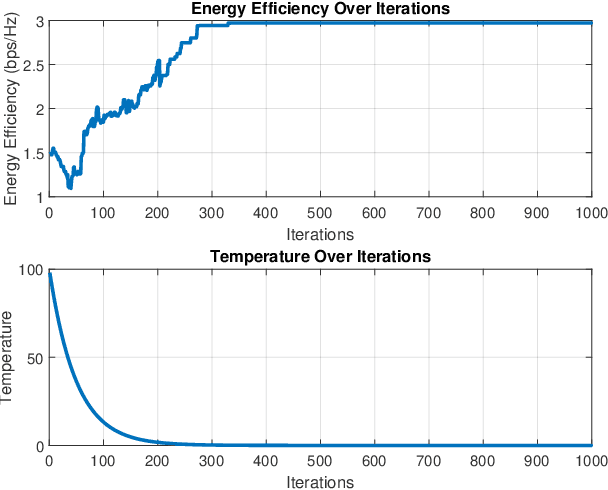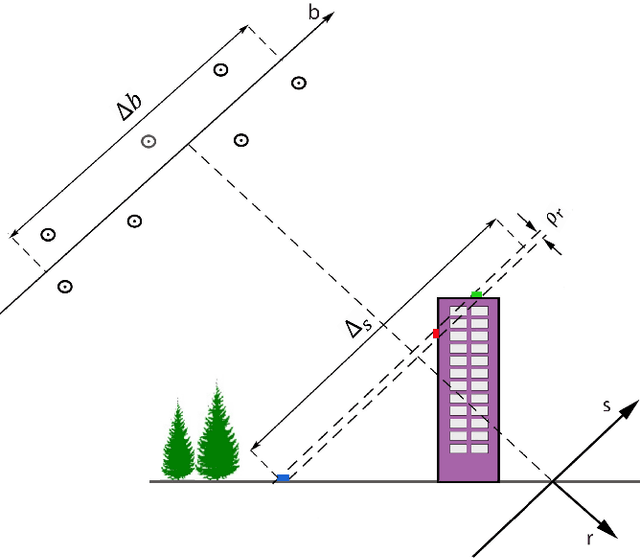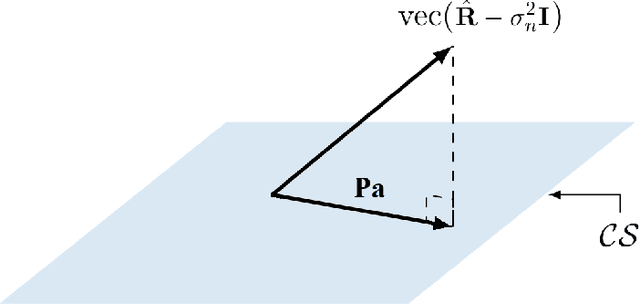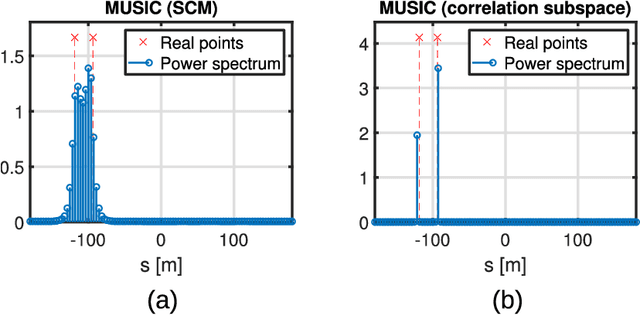Mohammad Sadegh Fazel
Energy-Efficient Resource Allocation for Multi-IRS-Aided Indoor 6G Networks
Feb 14, 2023



Abstract:In this paper, we propose a distributed intelligent reflecting surface (IRS) assisted single-user and multi-user millimeter wave (mmWave) system. Then, we formulate the resource allocation problem as an optimization to maximize energy efficiency under individual quality of service (QoS) constraints. We first propose a centralized algorithm, and further, a low-complexity distributed one where the access point (AP) and IRSs independently adjust the transmit beamforming of AP, the phase shifts, and the on-off status of IRSs in an alternating manner until the convergence is reached. In a multi-user scenario, in the first stage, the successive convex approximation (SCA) and fractional programming (FP) approaches are applied to achieve a solution for optimization subproblems of the phase-shift coefficients and element on-off status of IRSs. Then, for the beamforming subproblem, a modified nested FP approach is proposed that finds an optimal solution for the beamforming vectors of AP. Our performance analysis on a practical scenario shows that the proposed centralized and distributed approach respectively enhances the energy efficiency by up to 55%, 42% for single-user, and up to 984% for multi-user scenarios, in comparison to the case where the on-off status and phase-shift coefficients of IRS elements are not selected optimally.
A Sequential MUSIC algorithm for Scatterers Detection 2 in SAR Tomography Enhanced by a Robust Covariance 3 Estimator
Aug 04, 2022



Abstract:Synthetic aperture radar (SAR) tomography (TomoSAR) is an appealing tool for the extraction of height information of urban infrastructures. Due to the widespread applications of the MUSIC algorithm in source localization, it is a suitable solution in TomoSAR when multiple snapshots (looks) are available. While the classical MUSIC algorithm aims to estimate the whole reflectivity profile of scatterers, sequential MUSIC algorithms are suited for the detection of sparse point-like scatterers. In this class of methods, successive cancellation is performed through orthogonal complement projections on the MUSIC power spectrum. In this work, a new sequential MUSIC algorithm named recursive covariance canceled MUSIC (RCC-MUSIC), is proposed. This method brings higher accuracy in comparison with the previous sequential methods at the cost of a negligible increase in computational cost. Furthermore, to improve the performance of RCC-MUSIC, it is combined with the recent method of covariance matrix estimation called correlation subspace. Utilizing the correlation subspace method results in a denoised covariance matrix which in turn, increases the accuracy of subspace-based methods. Several numerical examples are presented to compare the performance of the proposed method with the relevant state-of-the-art methods. As a subspace method, simulation results demonstrate the efficiency of the proposed method in terms of estimation accuracy and computational load.
 Add to Chrome
Add to Chrome Add to Firefox
Add to Firefox Add to Edge
Add to Edge